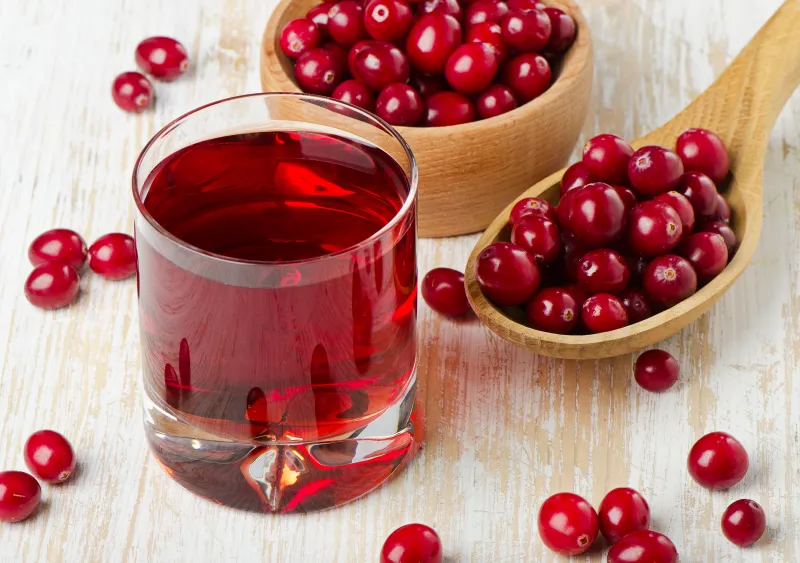At a glance
Urinary tract infections (UTIs) are common bacterial infections that can affect the bladder, urethra, or kidneys, often caused by E. coli entering the urinary tract. Factors such as poor hygiene, hormonal changes, and metabolic imbalance can increase risk. Many people turn to natural approaches, including hydration, probiotics, and dietary changes, to help maintain urinary health and microbial balance.
Dealing with a urinary tract infection (UTI) can be uncomfortable and frustrating. While antibiotics are often prescribed, many people are turning to natural UTI remedies as an alternative or complementary approach.
These remedies may help alleviate symptoms and support your body’s natural healing process. In this guide, we’ll explore effective natural UTI remedies that you can try at home, backed by scientific research and expert insights.
As someone who has experienced UTIs firsthand and spent years researching natural health solutions, I understand the discomfort and urgency that comes with these infections.
Let’s explore some proven strategies to help you find relief and prevent future occurrences. We’ll delve into the world of natural remedies and provide you with actionable tips for treating UTIs.
Understanding UTIs: The Basics
Before we explore natural UTI remedies, it’s important to understand what we’re dealing with. A urinary tract infection occurs when bacteria, usually E. coli from the digestive tract, enter the urinary system. This can happen in the urethra, bladder, ureters, or even the kidneys.
Women are more susceptible to UTIs due to their anatomy, with a shorter urethra that makes it easier for bacteria to reach the bladder. Research shows women are 50 times more likely to get a UTI than men in their younger years, and this risk increases with age.
Common UTI Symptoms
Recognizing UTI symptoms early can help you start treatment promptly. Some symptoms include:
- Painful or burning sensation during urination.
- Frequent urge to urinate.
- Cloudy or bloody urine.
- Lower abdominal pain.
- Feeling tired or shaky.
If you experience fever, chills, or back pain, it could indicate that the infection has reached your kidneys, requiring immediate medical attention.
Top Natural UTI Remedies
Now, let’s explore some effective natural remedies for UTI treatment that can help you combat the infection and find relief.
From drinking plenty of fluids to incorporating certain foods into your diet, there are a number of things you can do to help your body fight off a UTI.
1. Hydration: Your First Line of Defense
Increasing your fluid intake is one of the simplest yet most effective natural UTI remedies. Aim for at least 2.5 liters of water daily. This helps flush bacteria from your urinary system, making it an important part of UTI prevention.
I’ve found that setting reminders on my phone helps me stay on track with hydration. Keep a reusable water bottle with you throughout the day and refill it regularly.

2. Unsweetened Cranberry Juice: Nature’s UTI Fighter
Cranberries contain compounds that prevent bacteria from sticking to the walls of your urinary tract, which may help treat UTIs. Opt for unsweetened cranberry juice to avoid excess sugar, which can feed bacteria.
You can mix unsweetened cranberry juice with water to make it more palatable. Aim for a glass or two daily when dealing with a UTI. Drinking unsweetened cranberry juice can be a helpful addition to your UTI treatment plan.
3. Vitamin C: Boost Your Immune System
Vitamin C plays a crucial role in supporting your immune system and fighting off infections, including those that cause UTIs. Opt for a food-based vitamin C supplement, aiming for at least 500 milligrams daily.
Foods rich in vitamin C include citrus fruits, bell peppers, and leafy greens. Incorporating these into your diet can provide an extra boost to your immune system. Getting enough Vitamin C can be a great way to prevent UTIs as part of a healthy lifestyle.
4. Probiotics: Restore Beneficial Bacteria
A high-quality probiotic containing Lactobacillus strains can help counter harmful bacteria like E. coli. Probiotics support your body’s natural defense mechanisms and promote a healthy balance of gut bacteria.
Look for a probiotic supplement specifically formulated for urinary health. You can also include probiotic-rich foods like sauerkraut, yogurt, and kefir in your diet. Taking probiotics is often recommended as a way to prevent UTIs from recurring.
5. Garlic: Nature’s Antibiotic
Garlic has natural antibiotic properties that can help fight UTIs. Its high sulfur content makes it effective against harmful bacteria without disrupting beneficial gut flora.
You can incorporate more garlic into your cooking or take a garlic supplement. If you opt for raw garlic, start with one clove daily and gradually increase as tolerated. While more research is needed, some studies suggest that garlic may be an effective natural UTI treatment.
6. D-Mannose: A Targeted Approach
D-Mannose is a type of sugar that can help prevent E. coli from sticking to the walls of your urinary tract. It’s particularly effective for recurrent UTIs.
You can find D-Mannose supplements in health food stores or online. Follow the dosage instructions on the package, typically around 500 mg twice daily during an active infection.
If you’re prone to frequent UTIs, you may want to talk to your healthcare provider about whether D-Mannose is right for you.
7. Herbal Teas: Soothing Relief
Certain herbal teas can provide relief from UTI symptoms and support your body’s healing process. Consider trying:
- Uva Ursi: Known for its antibacterial properties.
- Marshmallow Root: Helps soothe irritated urinary tract tissues.
- Dandelion: Acts as a natural diuretic to flush out bacteria.
Always consult with a healthcare professional before using herbal remedies, especially if you’re pregnant, nursing, or taking medications. While generally considered safe, it’s important to use herbal teas with caution.
Lifestyle Changes to Prevent UTIs
While natural UTI remedies can be effective, prevention is always better than cure. Here are some lifestyle changes that can help reduce your risk of future UTIs:
Proper Hygiene Practices
Maintaining good hygiene is crucial in preventing UTIs. Always wipe from front to back after using the bathroom to prevent bacteria from the anal area from entering the urethra.
Urinate before and after sexual activity to flush out any bacteria that may have entered the urethra. Also, avoid using harsh soaps or douches in the genital area, as these can disrupt the natural balance of bacteria.
These simple hygiene practices can significantly reduce your risk of developing a UTI.
Clothing Choices
Wear breathable, cotton underwear and avoid tight-fitting pants. This helps keep the genital area dry and less hospitable to bacteria.
Change out of wet swimsuits or sweaty workout clothes promptly to reduce moisture that can promote bacterial growth. What you wear can actually have an impact on your urinary tract health.
Diet and Nutrition
A proper diet rich in fruits, vegetables, and whole grains can support your immune system and overall urinary health. Avoid excessive sugar and processed foods, which can feed harmful bacteria.
Consider incorporating foods known to support urinary health, such as blueberries, pineapple, and ginger, into your regular diet. Eating a healthy diet is important for overall health, and it can also help prevent UTIs.
When to Seek Medical Help
While natural UTI remedies can be effective, it’s important to know when to seek professional medical help. Contact your healthcare provider if:
- Symptoms persist for more than 48 hours.
- You develop a fever or chills.
- You experience back pain or nausea.
- You have a history of recurrent UTIs.
- You’re pregnant.
These could indicate a more serious infection that requires antibiotic treatment. While natural remedies can be helpful, it’s important to remember that they are not a substitute for professional medical advice.

UTI Relief Naturally
Remedies such as cranberry juice, probiotics, and increased hydration are highlighted for their effectiveness in alleviating symptoms and preventing recurrence.
The article also features keto asparagus, a nutritious vegetable known for its diuretic properties that can help flush out bacteria from the urinary tract.
Keto asparagus not only supports UTI relief but also fits seamlessly into a low-carb diet, providing essential vitamins and minerals without compromising ketosis.
By combining these expert-recommended remedies with delicious dishes like keto asparagus, individuals can find natural relief and support overall urinary health.
Key takeaways
- UTIs are common bacterial infections that affect parts of the urinary system, most often caused by E. coli entering the bladder and multiplying.
- Women are more prone to UTIs due to a shorter urethra, while lifestyle habits, hormone changes, and metabolic factors can further increase risk.
- Drinking water, consuming probiotic foods, and using natural diuretics may help promote urinary health and support the body’s natural defenses.
Supporting Data
https://pubmed.ncbi.nlm.nih.gov/12649544
https://pubmed.ncbi.nlm.nih.gov/17611821
https://pubmed.ncbi.nlm.nih.gov/27251185
https://pubmed.ncbi.nlm.nih.gov/25882919
https://pubmed.ncbi.nlm.nih.gov/22529959
https://pubmed.ncbi.nlm.nih.gov/23433130
https://www.ncbi.nlm.nih.gov/pmc/articles/PMC3883373
https://www.ncbi.nlm.nih.gov/pmc/articles/PMC2643114
https://www.ncbi.nlm.nih.gov/pmc/articles/PMC4155381
https://pubmed.ncbi.nlm.nih.gov/28197453








